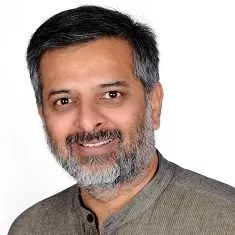
Keywords: Indigenous Knowledge Systems, Postcolonial Theory, Schooling Systems, Capability Approach to Education
Bio: Vikas is a faculty in the School of Education, Azim Premji University Bangalore. He splits his time between teaching and research, and working with grassroots social entrepreneurs working on education issues in India.
“[there is] a large army of educated unemployed in India, partly not able to get any jobs, neither are able to start any other modes of livelihood. And one gets a sense that in the process of this extended experience in schooling, they lose what they would have learned in the communities themselves.”
In this interview, Vikas discusses:
- His personal experiences that led him to research schooling systems.
- Educational experiences and outcomes for socioeconomically marginalized communities
- Issues of aspiration and justice in educational experiences of marginalized youth.
- Material contexts of post-colonial societies.
Further Reading:
- Maniar, V. (2019). ICT in schools: Panacea or a pipedream. Technology in Education: Perspectives and Praxis. L. Devaki (Ed.). Centre for Communication and Development Studies, Pune
- Maniar, V. (2018). Right to Education and Capability Enhancement in Rural South Africa. The Right to Education Movements and Policies: Promises and Realities, 46.
- Maniar, V. (2019). Towards a theory of schooling for good life in postcolonial societies. Journal of Human Values, 25(3), 166-176.
- Maniar, V. (2019). ICT in schools: Panacea or a pipedream. Technology in Education: Perspectives and Praxis. L. Devaki (Ed.). Centre for Communication and Development Studies, Pune
- Maniar, V. (2018). Right to Education and Capability Enhancement in Rural South Africa. The Right to Education Movements and Policies: Promises and Realities, 46.
- Maniar, V. (2019). Towards a theory of schooling for good life in postcolonial societies. Journal of Human Values, 25(3), 166-176.

